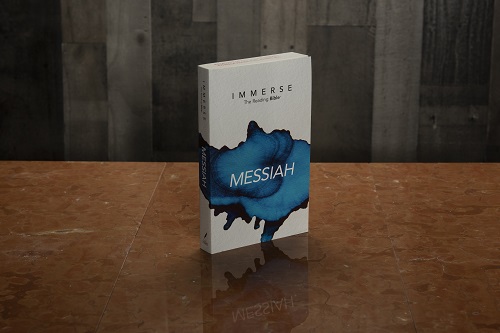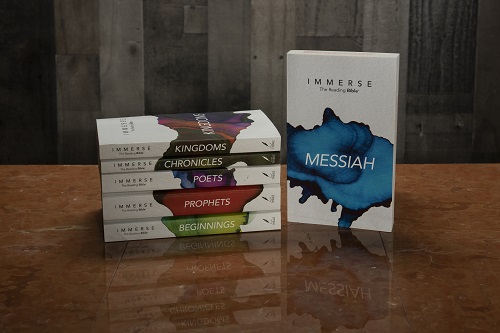We all know it. We’ve all heard it, we’ve most likely prayed it, and perhaps we’ve even sung it.
The Lord’s Prayer. The one Jesus himself taught us to pray. It’s straight from the Master. How can we not do what he says? Since this is a Jesus prayer, we might be reluctant to admit we’re not especially thrilled with it.
But let’s admit it. At this point it can seem so . . . what? Mundane? Common? Safe?

Maybe there’s more to our lethargy with this prayer than simple overexposure. Maybe we’re verging on boredom with it because we haven’t captured the heart of it. And maybe this is because we haven’t focused on the context in which we first received it.
What context?
It’s easy to forget that this was prayer was introduced to the church by being embedded in two of our Gospels—Matthew’s and Luke’s. We don’t have space to explore both settings (or even one in any detail), but we’ll look more closely at Luke’s version in light of his Gospel’s bigger project.
The purpose here is to briefly set forth the kind of difference reading the Bible in context can make. In this case, we’ll see that there’s a whole lot more going on with the Lord’s Prayer than we’ve known.
Fitting Jesus’ Prayer into his Mission
Luke gives us the shorter, compact version of Jesus’ prayer, generally rendered along these lines in modern translations:
Father,
hallowed be your name,
your kingdom come.
Give us each day our daily bread.
Forgive us our sins,
for we also forgive everyone who is indebted to us.
And lead us not into temptation.
Crucially, Luke tells the story of Jesus in light of Israel’s bigger history with God. Jesus is fully embedded in Israel’s first-century context, announcing the arrival of God’s long-standing purposes for his people. In a fascinating passage that occurs just a little before Jesus teaches his disciples this prayer, we read that Jesus himself went up on a mountain to pray. Then this happens:
As he was praying, the appearance of his face changed, and his clothes became as bright as a flash of lightning. Two men, Moses and Elijah, appeared in glorious splendor, talking with Jesus. They spoke about his exodus, which he was about to bring to fulfillment at Jerusalem.
His exodus? Yes, this is one way Luke signals that the entire mission of Jesus was conceived in terms of a fresh Exodus experience for God’s people. This is precisely what the prophets had foretold. God would again come down and act decisively for his people’s liberation. God’s great new act of redemption would follow the pattern of the previous one. Biblical scholar Brant Pitre has written: “Each line of the prayer is rooted in the language and imagery of the Scriptures of Israel and in the prophetic hope for a new Exodus.”1 When we take a closer look at the Lord’s Prayer in the larger context of the Bible’s whole story, we find that it moves from being somewhat abstract and tame to bold and even risky.
Jesus is telling his disciples to urgently plead with God to bring this promised, future New Exodus. And to do it right now. In short, pray in the future. Tell God to free his people, bring them home, and establish his kingdom fully right here on earth.
Reading the prayer of Jesus in context recognizes all this:
• The Exodus was the first time God called Israel his son, and became Israel’s Father.
• The Exodus is when Pharaoh asked, “Who is Yahweh that I should obey him and let Israel go?” So God showed up and made his name holy, known among the nations.
• . . . when God brought his power and reign to earth to rescue his people.
• . . . when God brought his people daily bread in the wilderness.
• . . . when God forgave his people and revealed the Jubilee when all debts would be forgiven.
• . . . and when the time of great trial or testing came right before the great redemption.
Israel had been praying for centuries for all this to happen again. But Jesus told his closest followers and mission partners to pray for God to do it all right now, through the work of the Messiah. And then Jesus went out and did the work. He fought the great battle and brought us the New Exodus, freeing us from God’s biggest, baddest enemies—sin and death.

When read in this light, the prayer and its urgent Greek imperatives go more like this:
Father,
Make your name holy.
Bring your kingdom.
Give us today our daily bread.
Forgive us our sins,
for we also forgive everyone indebted to us.
Do not bring us to the time of trial.
The early church brilliantly connected the Lord’s Prayer directly to its observance of the Lord’s Supper. A New Exodus prayer right before a New Exodus Passover meal. Those early followers of Jesus also routinely introduced the prayer with the words, “We make bold to pray.”
Who are we to tell God what to do? It may be that we shouldn’t even have the nerve to pray this way, to demand that God act decisively right now to finish his work of the world’s redemption in and through Jesus. Except that Jesus himself told us to have the nerve.
So go ahead and pray that bold prayer in all its glorious biblical context. The way Jesus taught us.
1See his article The Lord’s Prayer and the New Exodus for a detailed exploration of all the connections
Find out more about the Institute for Bible Reading
Find out more about our joint project, Immerse: The Bible Reading Experience

















 Many of us have been conditioned to automatically ask, “Okay, now what does this mean for me?” as we read. If a story or passage doesn’t have direct application to our lives today in the 21st century, it can be difficult to know what to do with it. Large portions of the Bible end up ignored because it’s hard to find something we can draw from it that we can start practicing immediately.
Many of us have been conditioned to automatically ask, “Okay, now what does this mean for me?” as we read. If a story or passage doesn’t have direct application to our lives today in the 21st century, it can be difficult to know what to do with it. Large portions of the Bible end up ignored because it’s hard to find something we can draw from it that we can start practicing immediately.

Recent Comments